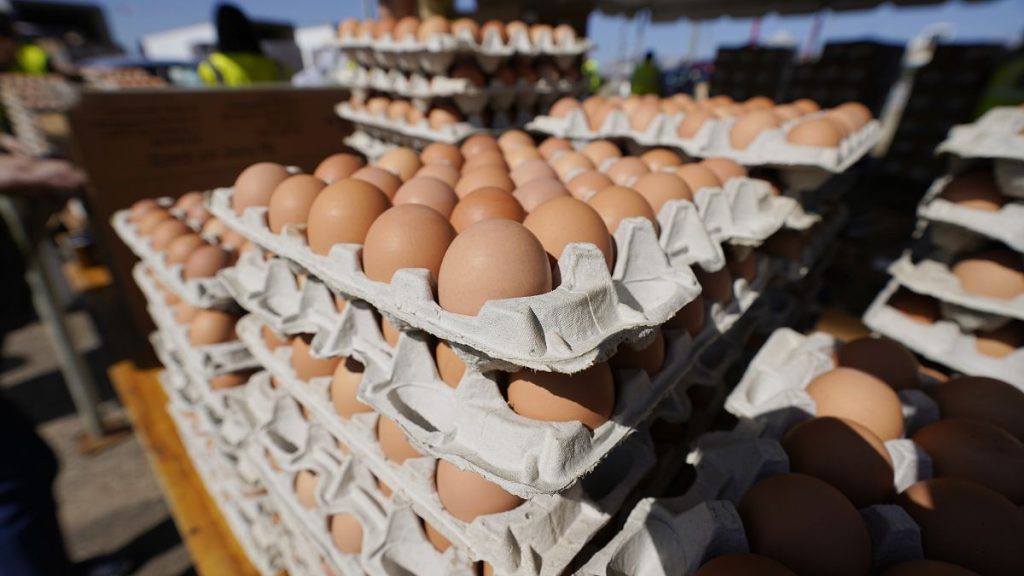The European Union is anticipated to decrease its imports of essential food items from Ukraine due to the implementation of a new preferential trade arrangement. The Commission is expected to impose restrictions on egg imports from Ukraine within the next two weeks, as well as restrictions on oat imports until 2025. Sugar imports are also under scrutiny by the EU executive, with trade experts suggesting they may be subject to controls. These measures are a result of adjustments made to the temporary suspension of tariffs and quotas on Ukraine’s agricultural exports following Russia’s invasion in 2022. The new free-trade scheme includes a safeguard mechanism to protect sensitive sectors such as eggs, poultry, sugar, oats, and more from excessive imports.
The EU Commission has the authority to trigger an emergency brake and reintroduce tariff-rate quotas if imports of certain commodities exceed specified levels. Sugar imports have already exceeded these levels, prompting concerns about the impact on the EU market. There is speculation that some Ukrainian sugar imported may be intended for re-export, influencing the evaluation of the Commission. If the trigger level is reached for sugar, tariffs will be re-imposed within 14 days. The issue is being closely monitored by the EU association representing European sugar users, who are concerned about potential restrictions affecting their ability to meet market demand.
Ukraine recently achieved a record export of sugar in May, with 65% of its sugar being exported to the EU. This increase in sugar exports is linked to the country’s grain producers seeing sugar beet as a viable diversification option. However, the possibility of restrictions on sugar imports to the EU could impact Ukraine’s ability to meet the European market demand. The situation is being closely followed by various stakeholders, including trade experts, the EU Commission, and industry associations, who are navigating the complex dynamics of trade relations in the aftermath of Russia’s invasion of Ukraine.
The implementation of the new preferential trade scheme has prompted the European Union to closely monitor and potentially restrict imports of key food commodities from Ukraine. The decision to impose restrictions on egg and oat imports, as well as the scrutiny of sugar imports, reflect efforts to protect specific sectors from excessive imports. The automatic safeguard mechanism included in the new free-trade scheme allows the EU Commission to intervene if imports surpass specified levels, with sugar imports already exceeding these limits. The potential reintroduction of tariffs on sugar imports has raised concerns among European sugar users about meeting market demand.
The situation highlights the complexities of trade relations in the context of geopolitical events such as Russia’s invasion of Ukraine. The EU’s actions to regulate imports from Ukraine illustrate efforts to balance trade interests and protect sensitive domestic sectors. The monitoring of sugar imports and the potential re-imposition of tariffs underscore the challenges faced by stakeholders in navigating trade dynamics in the aftermath of key geopolitical events. The need to balance market demand, trade regulations, and geopolitical considerations adds layers of complexity to trade relations between the EU and Ukraine, requiring careful monitoring and adjustment of trade policies to ensure a fair and sustainable trade environment.


